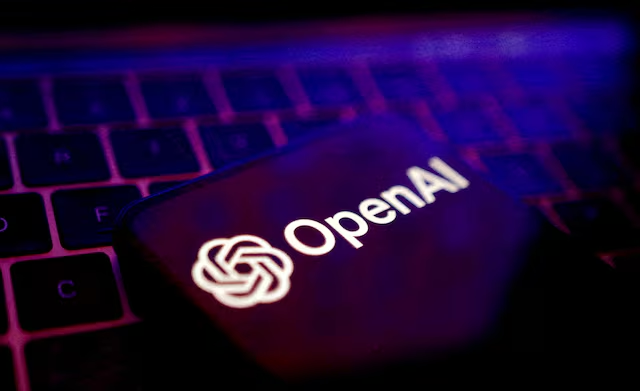OpenAI is facing a formidable legal challenge in India as it seeks to dismiss a copyright lawsuit by arguing that Indian courts lack jurisdiction over its U.S.-based operations. However, legal experts suggest that this argument may not hold water, given the precedents set by other tech giants and India’s evolving judicial stance on digital services operating within its borders.
The lawsuit, filed by Indian news agency ANI, accuses OpenAI of using copyrighted content without authorization. The case has garnered significant attention, particularly as major media groups, including those associated with billionaires Gautam Adani and Mukesh Ambani, have rallied against OpenAI in a broader push for stronger copyright enforcement in the AI era.
A Growing Storm: OpenAI’s Legal Battle in India
OpenAI has been facing copyright infringement lawsuits in multiple jurisdictions, including the U.S., Germany, and Canada. However, the Indian case is particularly complex due to the company’s legal defense strategy. In its filings, OpenAI has contended that:
- Its terms of service mandate dispute resolution in San Francisco.
- It does not maintain servers or data centers in India.
- Indian courts lack jurisdiction over its operations.
Legal experts, however, argue that such a stance is unlikely to be upheld, citing previous cases involving major global tech firms like Google, Meta (formerly Facebook), and X (formerly Twitter).
“It’s a pre-Internet era argument which will not fly in Indian courts today,” said Dharmendra Chatur, a partner at Poovayya & Co., which advises foreign technology firms.
Indian courts typically assess whether a company’s digital services are accessible to users in India and whether the company benefits from Indian customers. Given that OpenAI charges an 18% Indian tax on its paid services and has acknowledged the “massive uptake” of ChatGPT in the country, legal analysts believe the jurisdiction argument may not hold.
Legal Precedents and Expert Opinions
The case against OpenAI draws comparisons to a landmark 2022 ruling involving Telegram. In that case, an Indian author sued Telegram for copyright violations after pirated copies of her books were shared on the platform. Telegram initially refused to disclose user data, citing its Dubai jurisdiction and offshore servers. However, a Delhi court ruled that territoriality concepts in the digital era had evolved, stating:
“The conventional concepts of territoriality no longer exist. Choosing not to locate servers in India cannot divest Indian courts from dealing with copyright disputes.”
Under legal pressure, Telegram eventually complied. This ruling, experts argue, undermines OpenAI’s jurisdictional defense.
Court-appointed experts Arul George Scaria and Adarsh Ramanujan have also weighed in, asserting that OpenAI’s services are clearly being made available to Indian users. In his submission on January 25, Scaria noted that the company’s interactive AI models are designed for engagement with Indian users, further strengthening the case for jurisdiction.
What’s at Stake for OpenAI?
If OpenAI wins its jurisdiction argument, it will avoid the copyright lawsuit in India entirely. However, if it loses, it will have to face ANI’s claims, which include:
- Demand for deletion of AI training data containing copyrighted content.
- $230,000 in damages for alleged infringement.
With the Delhi court set to hear the case in February, the outcome could set a significant precedent for AI companies operating in India and beyond.
India’s Tough Stance on Big Tech
Even beyond this lawsuit, India has been increasingly assertive in its regulation of foreign tech firms. The government has repeatedly clashed with global platforms over compliance with local laws. In 2021, India’s IT minister criticized U.S. tech companies, stating:
“Their position that ‘I will only be governed by laws of America’ is plainly not acceptable.”
That same year, the Indian government had a highly publicized standoff with Twitter, now X, over content removal orders. The government insisted on compliance, issuing a press release titled “Twitter needs to comply with the laws of the land.” Twitter initially resisted but eventually complied—though it later sued the Indian government, and that case remains ongoing.
A High-Stakes Visit by OpenAI Executives
Amid these legal developments, OpenAI’s leadership is preparing for a high-profile visit to India. CEO Sam Altman is scheduled to visit on February 5, accompanied by senior executives James Hairston and Srinivas Narayanan.
Pragya Misra, OpenAI’s India executive, has previously emphasized India’s importance as a market, stating: “India is really important … we’ve seen massive uptake of ChatGPT.”
Final Thoughts: A Legal Battle with Global Implications
OpenAI’s legal defense in India will be closely watched by the global tech and AI community. The outcome could influence how AI companies approach copyright compliance and jurisdictional disputes in emerging markets. If Indian courts rule against OpenAI, it could pave the way for more stringent AI regulations and greater accountability for tech firms operating across borders.
With the legal battle heating up and regulatory scrutiny increasing, OpenAI finds itself at a crossroads. Whether it can successfully argue jurisdictional immunity or will have to face the lawsuit on Indian soil remains to be seen. Either way, the decision will have far-reaching implications for AI governance, digital jurisdiction, and the future of AI-driven content generation.










